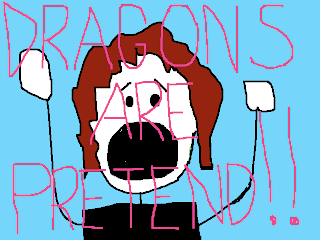Toilet passes are fairly easily discouraged, and I have a couple of options that work well.
#1 - You need to ask me if you can go without using the letter 'e' in your sentence.
#2 - My toilet pass looks like this:
#3 - "When you've finished all your work for the day."
You can usually make a kid hold it until the next lesson, and then they have to bother that teacher instead, which is great.
Sick bay passes are a different story though, because who am I to diagnose whether or not a kid is actually ill. If a kid says they have a headache, or a stomache-ache, I can try to keep them in the room, but ultimately, if they want to go, I'm not going to have them keel over in my room.
Enter Sven, who is probably my most regular "I need to go to sick-bay-er".
Sven is thirteen. He is very well-schooled in the possible diseases that could cause him to need to be exempt from class, and I am super reluctant to let him go to sick-bay, because I know that 99.9% of the time, he's faking it. The kid once claimed to have period pain (he obviously overheard a girl use this one, get away with it, and decided to try it on).
However, one day, he tried on a new symptom. A teacher's worst fear:
I told him he was fine, that he should sit down, stop thinking about it, and it would go away. The kid is a hypochondriac, and I was bored with his games.
I assure him that it's probably just dandruff, or that he's imagining it, and he assures me that he's 'for serious' this time. He approaches my with determination in his eyes, it seems he is not going to take his spelling test lying down.
He has one more move. He slowly, ever so slowly moves his clenched fist towards me, and finally hits me with the clincher, opening it:
...
True Story.



























